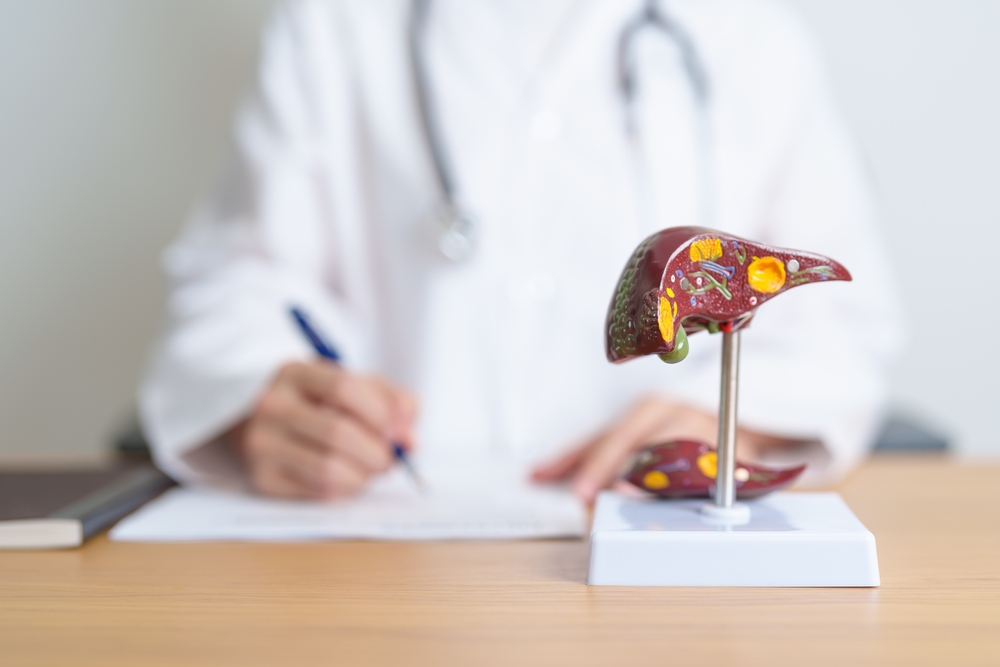You probably think your liver is doing just fine, thank you very much. You eat your vegetables, hit the gym a few times a week, and maybe only have wine on weekends. But here’s the plot twist nobody saw coming: your liver might be quietly storing fat like a sneaky squirrel preparing for winter, even if you’re the picture of health on the outside.
Fatty liver disease isn’t just something that happens to people who party too hard or live on fast food. It’s becoming the ultimate stealth health condition, creeping up on people who think they’re doing everything right. And the scariest part? You probably won’t feel a thing until things get serious.
Your liver is basically a multitasking superhero
Think of your liver as the hardest-working employee in your body’s corporate headquarters. This three-pound powerhouse handles over 500 different jobs every single day. It filters toxins, produces proteins, stores energy, and manages your blood sugar like a caffeinated accountant during tax season.
But here’s where things get tricky. When your liver gets overwhelmed, it starts storing fat in its cells. At first, this seems harmless enough. A little extra padding never hurt anyone, right? Wrong. When fat takes up more than 5% of your liver’s weight, you’ve officially entered fatty liver territory.
The really frustrating part is that your liver doesn’t send you angry text messages when this happens. It just quietly accumulates fat while you go about your day, completely unaware that your internal cleanup crew is struggling.
The sneaky ways fat infiltrates your liver
You might be wondering how fat ends up in your liver when you’re not exactly living on cheeseburgers and milkshakes. The answer is more complex than you’d think, and it involves some serious biochemical drama happening inside your body.
Your liver creates fat from excess carbohydrates, especially when you eat more than your body needs for immediate energy. Even healthy foods can contribute to this process if you’re consistently eating more calories than you burn. That quinoa salad and those sweet potato fries still contain carbohydrates that your liver can convert into fat.
Insulin resistance plays a huge role in this process too. When your cells become less responsive to insulin, your body produces more of it to get the job done. High insulin levels essentially tell your liver to start making and storing fat, even when you don’t need it.
Why healthy people aren’t immune to liver fat
Here’s the reality check that nobody wants to hear: being thin doesn’t automatically protect you from fatty liver disease. You can run marathons, eat organic everything, and still develop this condition. Medical professionals call this “lean fatty liver disease,” and it’s more common than you might think.
Genetics play a significant role in who develops fatty liver disease. Some people are simply more prone to storing fat in their liver, regardless of their overall body weight or fitness level. It’s like being dealt a specific hand of cards that you didn’t choose but have to play anyway.
Stress hormones can also push your liver toward fat storage. Chronic stress increases cortisol production, which can promote fat accumulation in your liver. So even if you’re eating perfectly and exercising regularly, that high-pressure job or ongoing family drama might be sabotaging your liver health.
The silent progression nobody talks about
Fatty liver disease is maddeningly quiet in its early stages. Unlike other health conditions that announce themselves with obvious symptoms, fatty liver disease prefers to work behind the scenes. You won’t experience pain, nausea, or any other red flags that would send you running to the doctor.
This silence is what makes fatty liver disease so dangerous. By the time symptoms appear, the condition has often progressed significantly. You might start feeling tired more often or notice some discomfort in your upper right abdomen, but these symptoms are easy to dismiss as stress or poor sleep.
The progression from simple fatty liver to more serious conditions can happen gradually over years. Inflammation can develop, leading to scarring and potentially more severe liver damage. The scariest part is that this entire process can unfold without you having any idea it’s happening.
Modern life is basically liver kryptonite
Our current lifestyle is creating perfect conditions for fatty liver disease to thrive. We sit more, stress more, and eat more processed foods than any generation before us. Even when we think we’re making healthy choices, we’re often consuming more calories and refined carbohydrates than our livers can handle efficiently.
The rise of hidden sugars in processed foods makes the problem worse. Foods marketed as healthy often contain surprising amounts of added sugars that your liver has to process. Even that innocent-looking granola bar or smoothie might be contributing to liver fat accumulation.
Our portion sizes have also grown significantly over the past few decades. What we consider a normal meal today would have looked enormous to our grandparents. More food means more work for your liver, and when it gets overwhelmed, fat storage becomes the default solution.
Taking control before it’s too late
The good news is that fatty liver disease is often reversible, especially in its early stages. Your liver has an amazing ability to heal itself when given the right conditions. Small changes in your diet and lifestyle can make a significant difference in reducing liver fat.
Focus on reducing refined carbohydrates and added sugars rather than eliminating entire food groups. Your liver responds well to steady, consistent changes rather than dramatic overhauls. Even losing 5-10% of your body weight can significantly reduce liver fat if you’re carrying extra pounds.
Regular physical activity helps your liver process fats more efficiently. You don’t need to become a fitness fanatic, but incorporating movement into your daily routine gives your liver the support it needs to function optimally.
The key is taking action before symptoms appear. Since fatty liver disease is so sneaky, being proactive about your liver health is essential. Regular check-ups and blood tests can help detect early signs of liver problems before they become serious.
Your liver has been working overtime to keep you healthy, often without any recognition or thanks. Maybe it’s time to return the favor by giving it the support it deserves.













